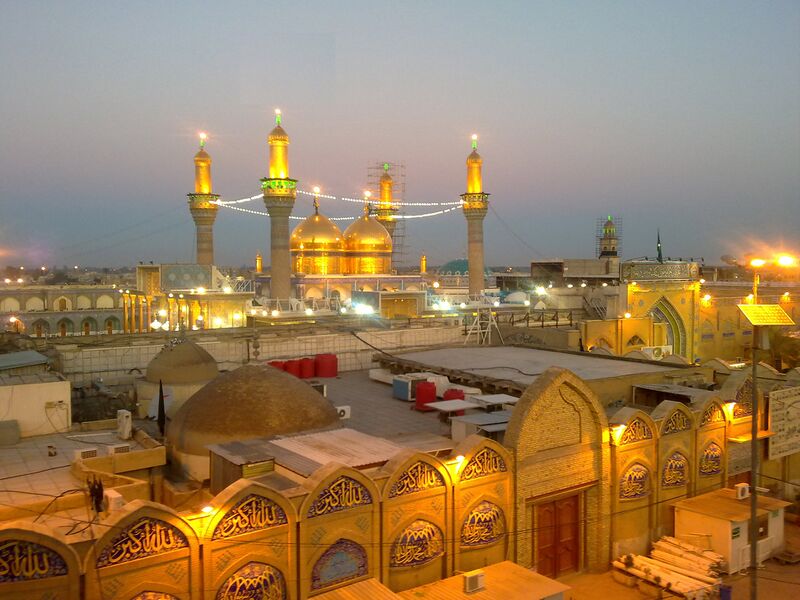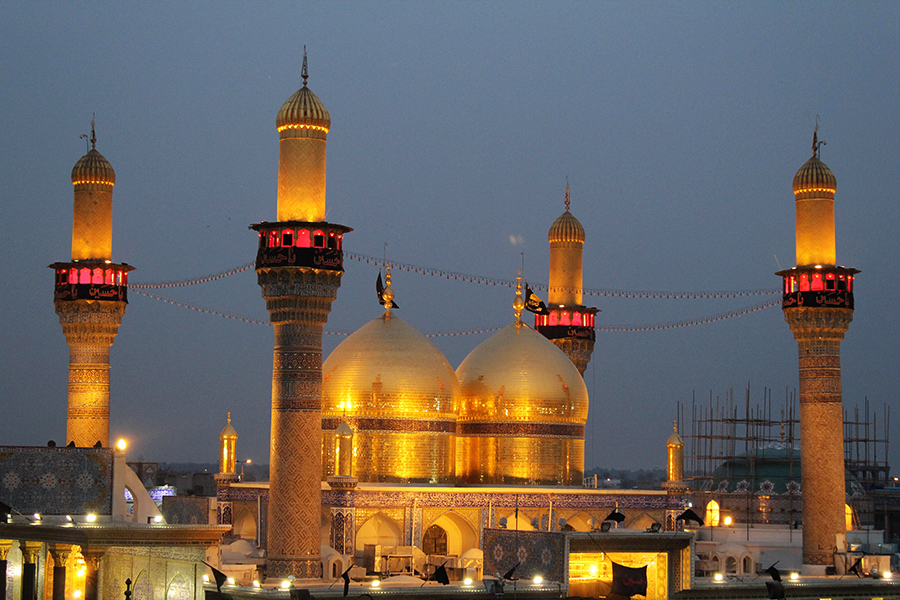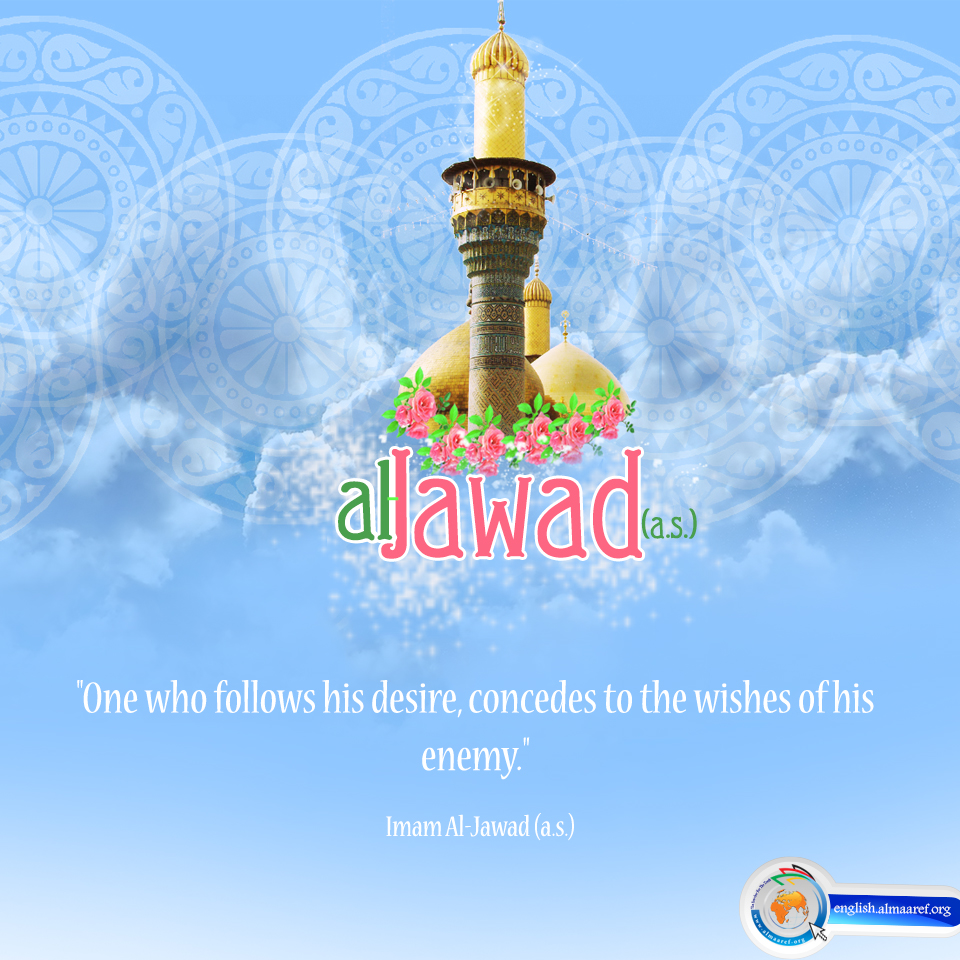Imam lived for a year in Baghdad with Ummul Fadhl. She was very disobedient to
Imam. When she found out that Imam had another wife (from the progeny of
Ammar-e-Yasir) and that there was also children she was jealous and angry
realizing that her father's plan had failed. She complained to her father who
also realized that his plan, to keep the 12th Imam in his progeny, had failed.
He was enraged and in his rage he drank heavily and went to the 9th Imam's house
and attacked Imam with a sword. Both Ummul Fadhl and a servant saw the attack
and believed Imam was dead. Mamun on waking next morning realized the
consequences of his attack and was thinking of arranging the disposal of Imam's
body when he saw Imam well without a scratch on him.
He was confused and asked Imam who showed him an amulet which is called Hirze
Jawad. The Holy Imam told him it was from his grand mother Lady Fatima Zahra (A.S.)
and kept the wearer safe from all except the angel of death.
We, also, observed how Ma'mun held meetings and councils in which he invited
various scholars, thinkers and jurisprudents like the Qadi ul-Qudat (Chief
Judge) of the Abbasid state, Yahya bin Aktham for scholarly discussions and
debates which lasted hours and days. In such meetings, they introduced the Imam
Jawad (A.S..) to critical legislative and theological questions to which he
answered wisely and accurately.
The debate was attended by top officials of the state, military commanders and
leaders. Then, the Qadi, Yahya bin Aktham approached Abu Ja'far al-Jawad (A.S.)
and asked him some questions he had prepared before. The Imam Jawad (A.S.)
answered them correctly and, in which, he showed the cause for correctness.
Therefore, the debate went on between Yahya and Imam al-Jawad (A.S.) in the
following way:
Ask me whatever you wish," said the Imam in the typical tone of his
ancestors
Yahya, then, asked the Holy Imam, "What is your verdict about a man who indulges
in hunting while he is in the state of Ihram'. (In the code of religious law
hunting is forbidden for a pilgrim).
The Imam at once replied, "Your question is vague and misleading. You should
have definitely mentioned whether he hunted within the jurisdiction of the Ka'ba
or outside; whether he was literate or illiterate; whether he was a slave or a
free citizen; whether he was a minor or a major; whether it was for the first
time or he had done it previously; also, whether that victim was a bird or some
other creature; whether the prey was small or big; whether he hunted in the day
or at night; whether the hunter repented for his action or persisted in it;
whether he hunted secretly of openly; whether the 'Ihram' was for Umra (the
lesser pilgrimage) or for Hajj (the greater pilgrimage). Unless all these points
are explained no specific answer can be given to this question.".
Qadi Yahya was bewildered and staggered in listening to these words, of the Holy
Imam, and the entire gathering was dumbfounded. Inability and indecision were
clear on Qadi Yahya's face.
Thus, the historical period, and what it contains of religious scholars and
jurisprudents, acknowledges the leadership of Imam al-Jawad (A.S.) in order to
continue the right path of his forefathers and their footsteps and, also, bear
the religious scholarly and political burdens of divine succession of the Holy
Prophet (pbuh&hh).



















